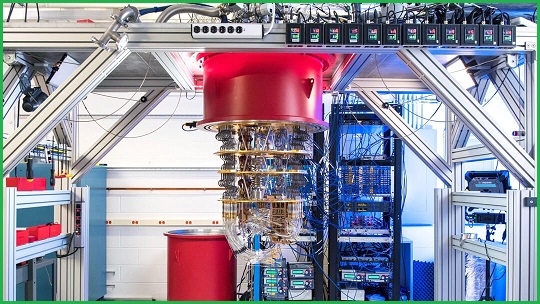Google wants to have a fully functional one million qubit quantum computer ready by the end of the decade.
The ambitious target was set during Google’s annual developer conference I/O in which the company showed off its new dedicated quantum AI labs in California.
“We’re on a journey to build 1,000,000 physical qubits that work in concert inside a room-sized error-corrected quantum computer,” Google’s Quantum AI lead engineer Erik Lucero said in a blog post.
“That’s a big leap from today’s modestly-sized systems of fewer than 100 qubits.”
Lucero outlined the scientific challenges posed by Google’s desire to break ground in the next phase of computing.
First Google will work on building the first breakthrough “quantum transistor” consisting of a pair of error-corrected logical qubits which can then perform operations.
But it needs to solve the problems associated with scaling quantum error correction.
Currently, the architecture of ‘surface codes’ used for quantum error correction – which involves an adjacent set of qubits keeping the main processing qubits in line – uses more effort to run the error correcting qubits than the actual computational task.
It’s a problem that a 21-year-old University of Sydney undergraduate recently helped crack.
Google is banking it will overcome the issue with scaling quantum error-correction in the coming years.
“We need to show that the more physical qubits participate in error correction, the more you can cut down on errors in the first place,” Lucero said.
Tying together 1,000 qubits, Google will make a single stable logical qubit can hold its coherence for as long as the system has power.
Google will then try to combine more of these “forever qubits” that are able to hold their quantum states for longer than the fractions of a second currently available into a fully functional error-corrected quantum computer.
“With an error-corrected quantum computer, we’ll be able to simulate how molecules behave and interact, so we can test and invent new chemical processes and new materials before investing in costly real-life prototypes,” Lucero said.
“These new computing capabilities will help to accelerate the discovery of better batteries, energy-efficient fertilizers, and targeted medicines, as well as improved optimization, new AI architectures, and more.”
Google made headlines in 2019 when it claimed to have achieved “quantum supremacy” with its 54-qubit Sycamore processor.










